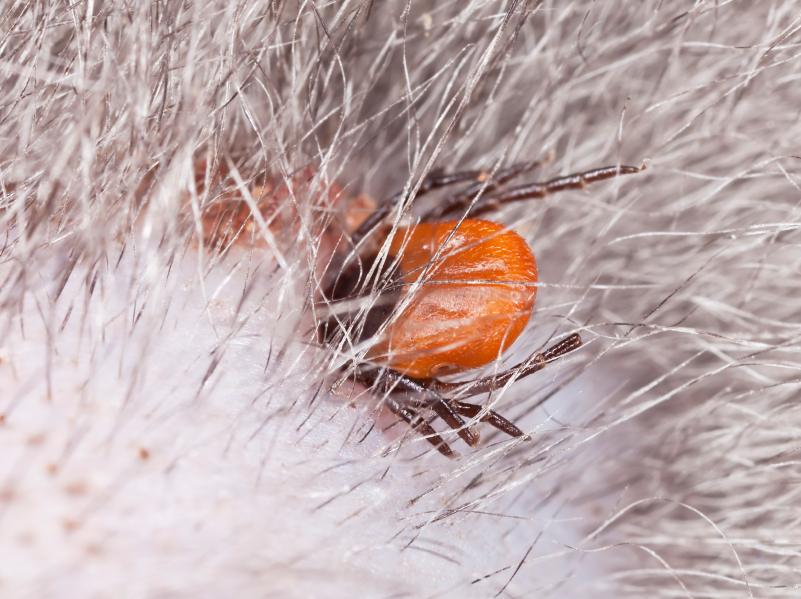I figured I would center this month’s blog around ticks and Lyme disease. This is an emerging disease in the area, and has been getting quite a bit of media coverage of late. I thought I would offer 10 facts about ticks and Lyme disease.
Any other questions please do not hesitate to call our animal hospital team at Acadia Veterinary Hospital!
- Ticks are not insects like fleas, but actually belong to the arachnid (the spider) family. They do not fly, but crawl or jump onto their host with the help of a unique structure called the haler’s organ. This structure helps them to sense heat, humidity and/or odor, allowing them to detect a potential host from their spot high in the grass and brush.
- Ticks use the blood of many different hosts (including deer, mice, lizards, birds, cats , dogs, etc) as their main food source. This allows them to transmit many blood borne diseases, including Lyme disease.
- There are hundreds of different types of ticks, some of the more prevalent ones in the maritimes are the Brown dog tick, the American dog tick, and the Deer tick. The deer tick, Ixodes sp., is currently the only one that transmits Lyme disease in our area.
- Lyme disease is caused by the bacteria Borrelia burgdorferi. A tick must be attached to an animal for 24-48 hours before the bacteria is transmitted. Therefore the MOST IMPORTANT thing you can do to prevent Lyme disease in both you and your pet is to check for and IMMEDIATELY remove any ticks after you all have been in a tick prevalent area (i.e. parks, woods).
- Symptoms of Lyme disease can start in dogs anywhere from 2-5 months after tick exposure. A blood test can be performed at your local veterinary hospital 1 month after your dog has had a tick removed. Most dogs who acquire the disease actually never get sick – only 5% of Lyme positive (positive on a blood test) go on to actually show signs of Lyme disease!
- Lyme disease in dogs is very different than in people. There is no rash like in people, and most dogs show signs of arthritis affecting multiple joints, fever, lethargy and anorexia. An antibiotic is prescribed to treat these symptoms and most dogs will go on to make a complete recovery, although relapses do occur.
- Lyme disease is rare to nonexistent in cats.
- You cannot get Lyme disease directly from your dog. We get Lyme disease the same way dogs do- from a tick!
- The best way to remove a tick is by grasping it with a pair of tweezers where is enters the skin, and to pull it slowly out. We also have free twisters and a guide on how to use them if you stop by and see us at Acadia Veterinary Hospital. Using methods such as applying petroleum jelly, a hot match, or alcohol will NOT cause the tick to ‘back out,’ In fact, these irritants may cause the tick to deposit more disease-carrying saliva in the wound.
- Ticks are the most prevalent in the spring and late fall (even into December!) Call our Dieppe animal clinic and we can talk about our different preventative products, and whether or not we would recommend the Lyme vaccine for your dog!




